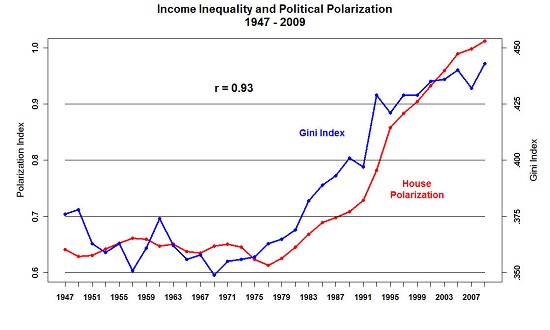Politics as practiced in a bygone era of stability no longer offers any solutions to these profound disruptions. I recently read a fascinating history of the social, political and economic context of the American Revolution: The Radicalism of the American Revolution by Gordon Wood. What is particularly striking is the critical role played by rapid social changes in the mid-1700s. Conventional histories focus on the political context, but more important were the changes in family and social relations, and the social impact of the economy moving from quasi-feudal forms of patronage that were ultimately personal relationships to impersonal market forces. It was these social changes that nurtured the revolutionary zeal
Topics:
Charles Hugh Smith considers the following as important: 5) Global Macro, Featured, newsletter, The United States
This could be interesting, too:
Nachrichten Ticker - www.finanzen.ch writes Die Performance der Kryptowährungen in KW 9: Das hat sich bei Bitcoin, Ether & Co. getan
Nachrichten Ticker - www.finanzen.ch writes Wer verbirgt sich hinter der Ethereum-Technologie?
Martin Hartmann writes Eine Analyse nach den Lehren von Milton Friedman
Marc Chandler writes March 2025 Monthly
| As I noted in recent blog posts, politics as practiced in a bygone era of stability no longer offers any solutions to these profound disruptions. Middle ground has vanished because there is no middle ground, and ideologies have become quasi-religious because they no longer offer any practical guidance to the economy that is still being transformed by the 4th Industrial Revolution.
Once again Americans are awakening to the precariousness of their prosperity and liberties, and traditional forms of belonging, loyalty and authority are unraveling. As the pie shrinks, the struggle to maintain one’s own share at the expense of others becomes Darwinian, and so it’s no surprise that finance and politics are increasingly becoming winner-take-all or winner-take-most zero-sum endeavors. A quiet revolution is brewing as the old social, political and economic structures fail. The politics of compromise is giving way to the politics of borrowing whatever sums are needed to placate every elite and every constituency. This is the pathway to financial debauchery as the currency will be destroyed by the politics of expediency. New social, political and economic structures will arise that are stable because they reflect new realities. “Politics as usual” failed in 1765 and it’s failing now. |
Income Inequality and Political Polarization, 1947-2009 |
Tags: Featured,newsletter


